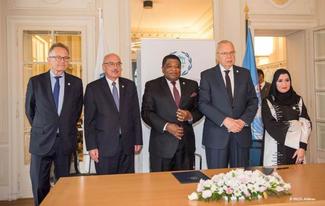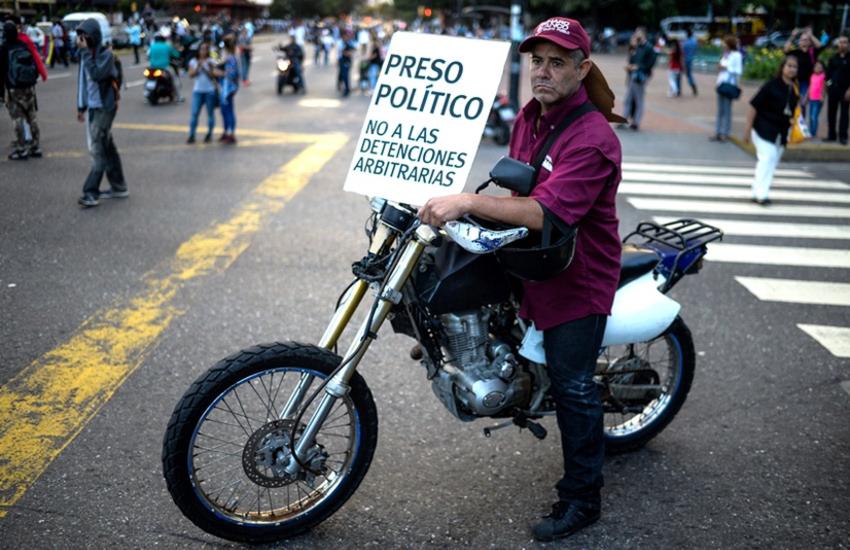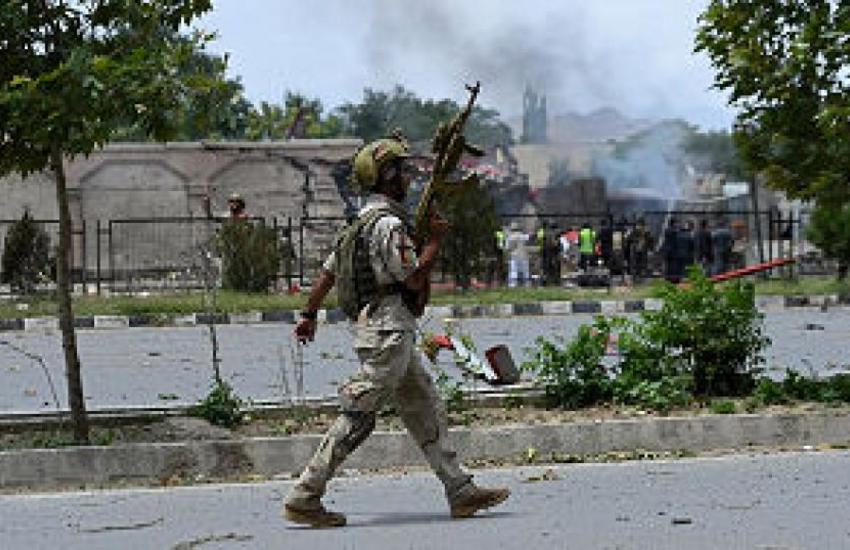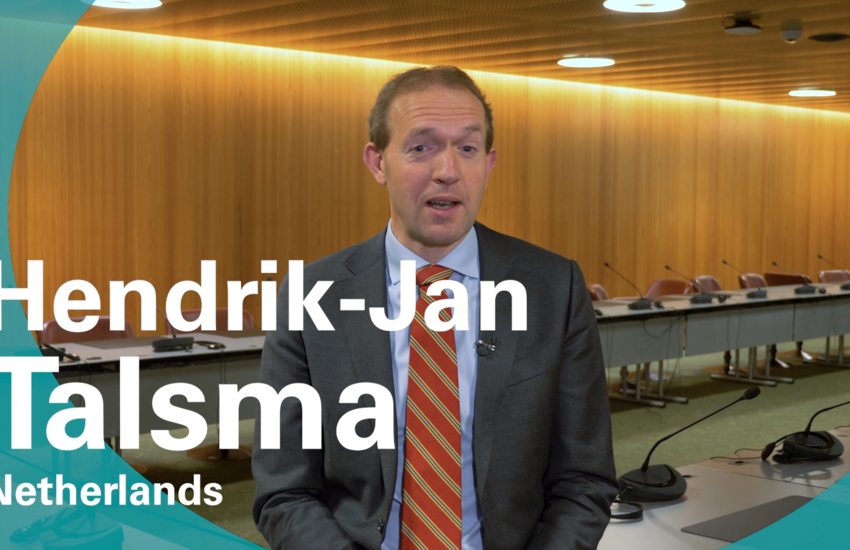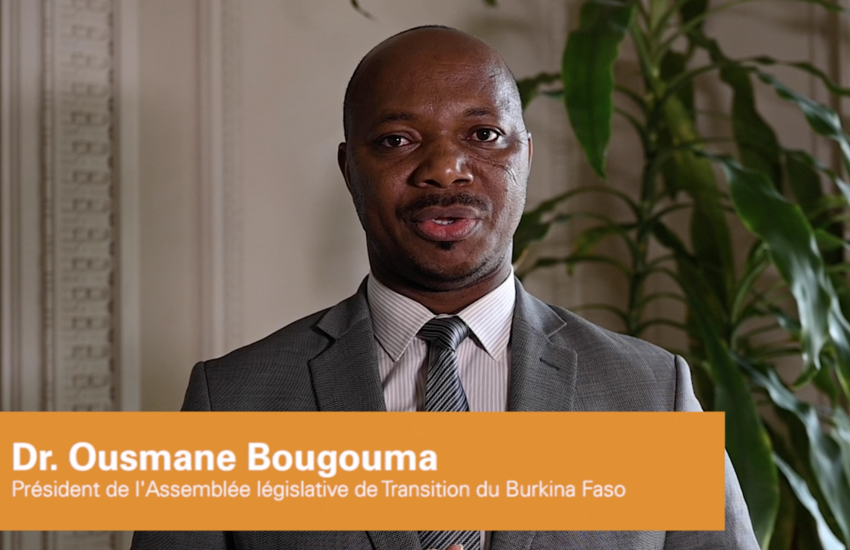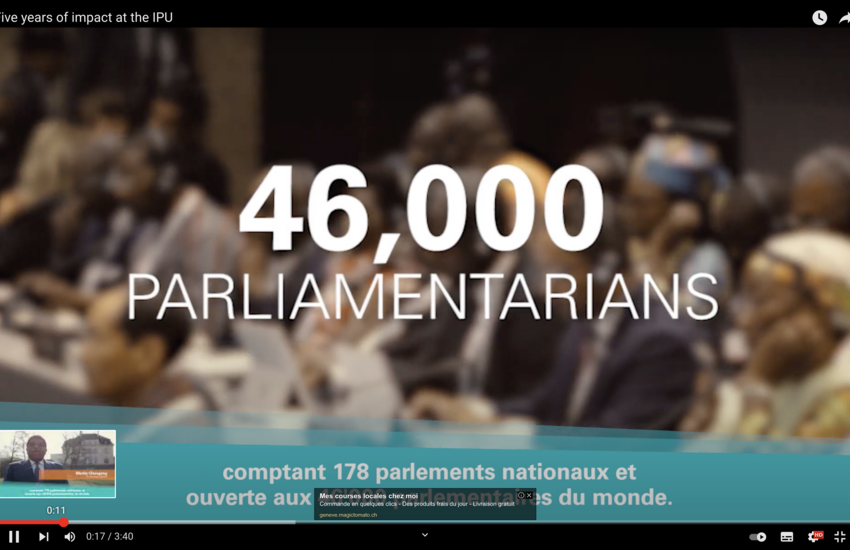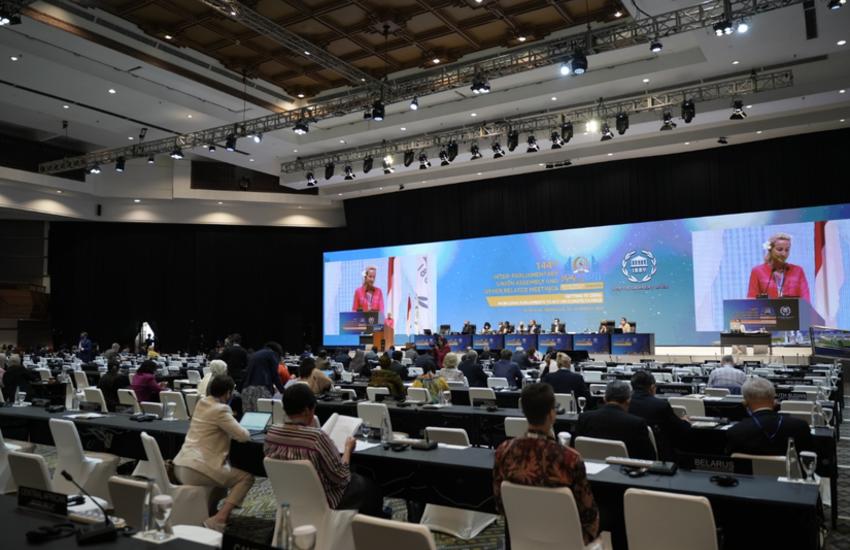The IPU, the United Nations Office of Counter-Terrorism (UNOCT), and the United Nations Office on Drugs and Crime (UNODC), have signed a Memorandum of Understanding to cement their cooperation in the fight against terrorism and violent extremism.
The signing took place at the House of Parliaments in Geneva on 8 May between the executive heads of the organizations: IPU Secretary General Mr Martin Chungong; UNOCT Under-Secretary-General Mr Vladimir Voronkov; and UNODC Executive Director Mr Yury Fedotov. The ceremony was attended by the Director-General of the United Nations Office at Geneva, Mr Michael Møller, and the Speaker of the UAE Parliament and Chair of the IPU High-Level Advisory Group on Countering Terrorism and Violent Extremism, Dr Amal Al Qubaisi.
The memorandum will provide a framework for cooperation between the IPU and the UN to promote the role of parliaments in addressing terrorism and conditions conducive to terrorism, contributing to the implementation of the United Nations Global Counter-Terrorism Strategy.
At the event, the IPU Secretary General also signed the United Nations Global Counter-Terrorism Coordination Compact to further reinforce links between the organizations.
Since 2017, the IPU, UNODC and UNOCT have implemented the five-year Joint Programme on Countering Terrorism and Violent Extremism Conducive to Terrorism to help parliaments implement IPU resolutions, international conventions, protocols and UN Security Council resolutions related to terrorism.
The Joint Programme also facilitates cooperation among parliaments through sharing good practices and lessons learned as well as providing parliaments with the necessary technical assistance and dedicated tools.
The work of the Joint Programme will be supported by the IPU’s High-Level Advisory Group on Countering Terrorism and Violent Extremism (HLAG).
Countering terrorism and violent extremism conducive to it also featured prominently in discussions at the recent IPU 140th Assembly in Doha, Qatar, with the announcement that the United Nations Office of Counter Terrorism will provide over USD 2.1 million from its Trust Fund to support parliamentary action against terrorism
The IPU already works with the UN on several issues including the Sustainable Development Goals, gender, human rights, and peace and security.
Watch a brief video of UNOCT Under-Secretary-General Mr Vladimir Voronkov speaking about what parliaments can do to fight counter-terrorism.
Background
The IPU is the global organization of parliaments. It was founded in 1889 as the first multilateral political organization in the world, encouraging cooperation and dialogue between all nations. Today, the IPU comprises 179 national member parliaments and 12 regional parliamentary bodies. It promotes democracy, helps parliaments become stronger, younger, gender-balanced, and more diverse. It also defends the human rights of parliamentarians through a dedicated committee made up of MPs from around the world. Twice a year, the IPU convenes over 1,500 delegates and MPs in a world assembly, bringing a parliamentary dimension to the work of the United Nations and the implementation of the 2030 global goals.
UNOCT was established in June 2017 to provide leadership on the implementation of General Assembly counter-terrorism mandates, to enhance coordination and coherence through the Global Counter-Terrorism Coordination Compact, and to strengthen the delivery of the United Nations counter-terrorism capacity building assistance to Member States, through the United Nations Counter-Terrorism Centre (UNCCT).
UNODC as mandated by the General Assembly is one of the United Nations’ key providers of counter-terrorism technical assistance in the legal, criminal justice and related areas. UNODC works to promote the ratification, legislative incorporation and implementation of the international legal instruments against terrorism, that is the 19 international counter-terrorism conventions and protocols and relevant General Assembly and Security Council resolutions; as well as to facilitate regional and international judicial and law enforcement cooperation in terrorism-related matters.





